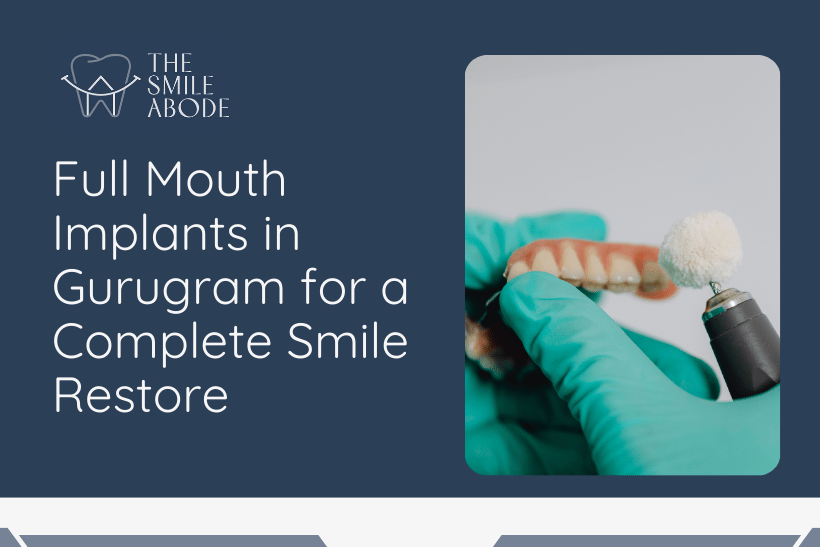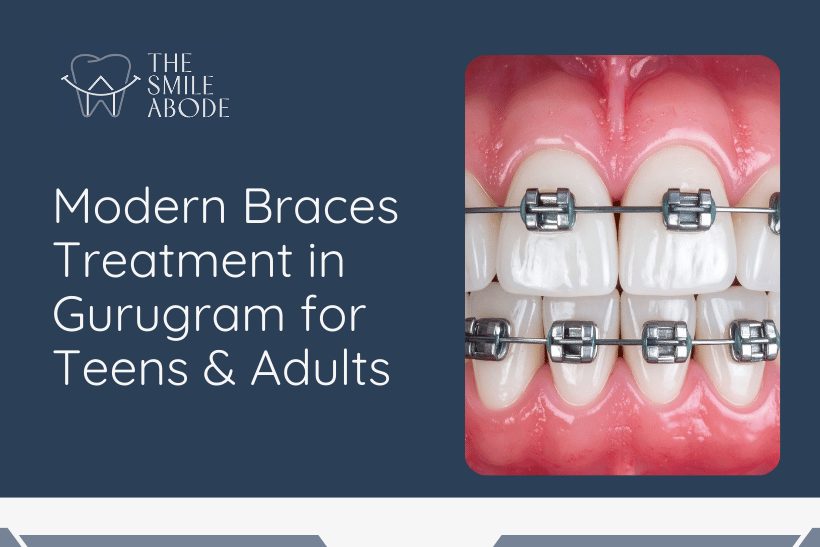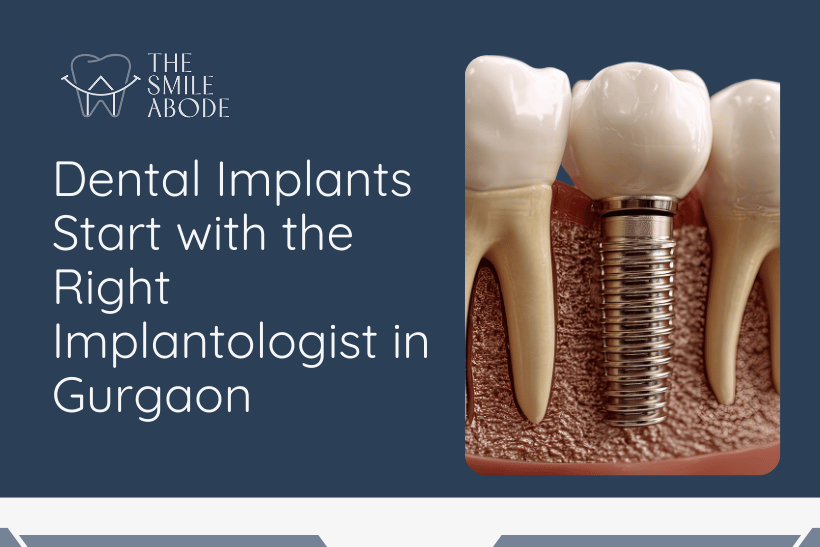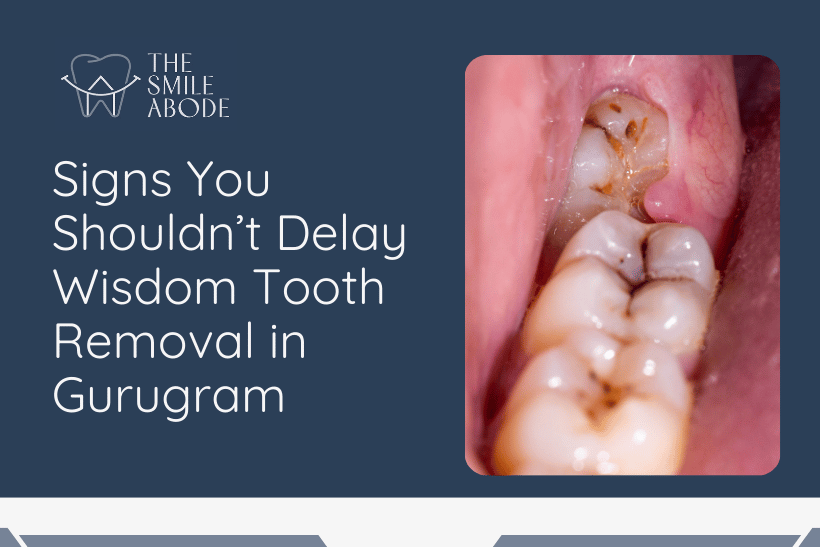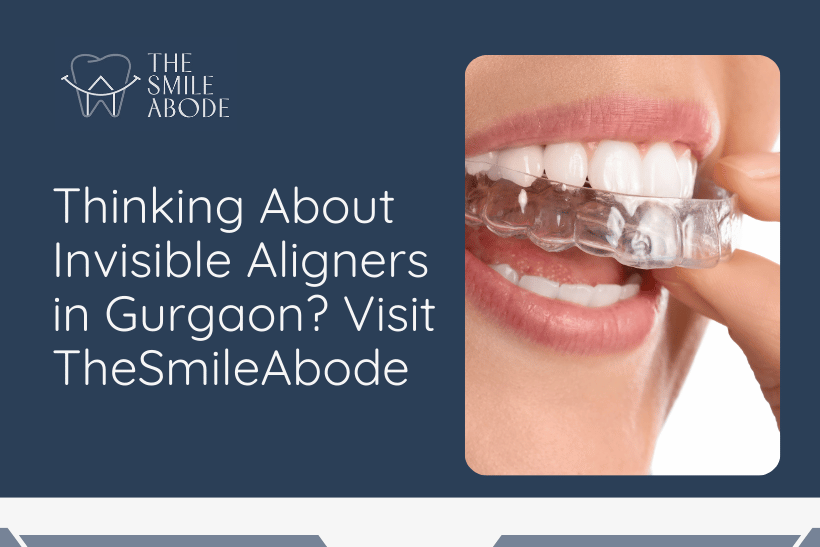Tooth Removal Causes Loss of Eyesight?
Tooth removal is a common dental procedure performed to treat severely decayed, damaged, or impacted teeth. However, a widespread myth suggests that removing a tooth—especially an upper tooth—can cause loss of eyesight. This belief has been around for years, causing unnecessary fear and hesitation in patients who need extractions.
In this article, we’ll debunk this myth, explain the connection between teeth and eyesight, and highlight how TheSmileAbode ensures safe, painless, and expert tooth extraction procedures without affecting vision.
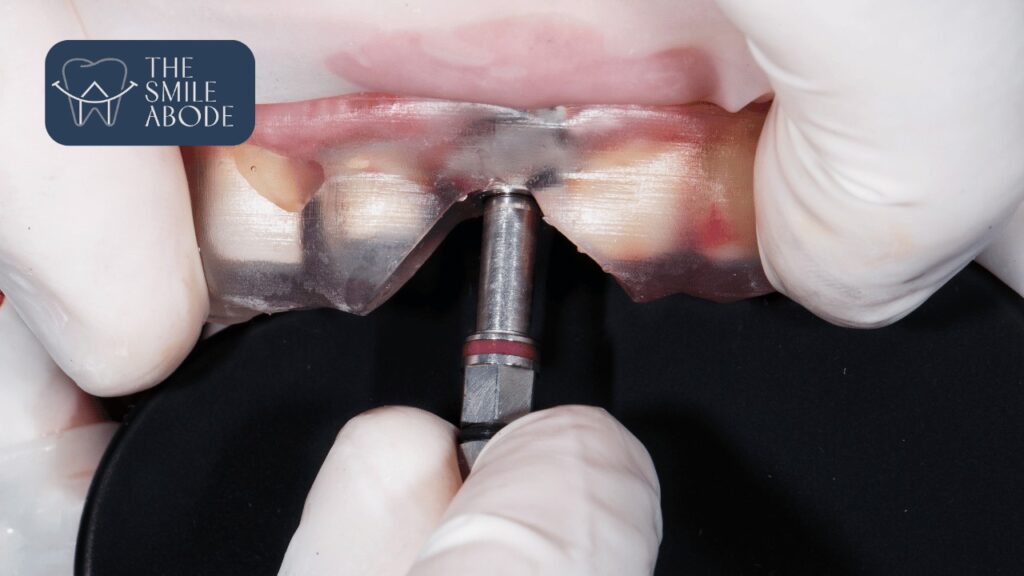
Is There a Connection Between Tooth Removal and Eyesight?
The Origin of the Myth
The idea that tooth removal can lead to blindness likely stems from the close proximity of the upper teeth to the eyes. The upper molars are located near the maxillary sinus and the optic nerve, leading people to assume that any disturbance in this area could affect eyesight.
While it’s true that the teeth, nerves, and eyes are interconnected, a tooth extraction does not directly impact vision. Modern dentistry and surgical techniques ensure that tooth removal is safe and does not interfere with the optic nerve.
The Medical Perspective
From a scientific standpoint, there is no evidence to support the claim that extracting a tooth can cause blindness. Here’s why:
- The optic nerve (responsible for vision) and dental nerves are separate – While they are located in the same region, they serve different functions and are not directly linked.
- Tooth extraction affects the mouth, not the eyes – The procedure is confined to the dental and gum areas, without impacting the visual system.
- Any discomfort near the eyes after extraction is temporary – Some patients may experience mild swelling, but it is due to post-operative healing, not vision impairment.
At TheSmileAbode, we ensure that tooth removal is performed with precision, care, and advanced techniques to prevent complications and ease patient concerns.
When Can Tooth Removal Affect the Facial Region?
Although tooth extraction does not cause vision loss, it can sometimes result in minor facial discomfort or swelling. Here are a few scenarios where patients might mistakenly link tooth removal to eye problems:
1. Sinus Involvement in Upper Molar Extraction
The roots of the upper molars are located close to the sinus cavity. In rare cases, removing an upper molar may create a sinus opening that could lead to temporary sinus pressure, mild headaches, or nasal congestion. However, this does not affect eyesight and heals with proper care.
2. Temporary Swelling Near the Eyes
After wisdom tooth extraction, especially upper wisdom teeth, patients might experience swelling around the cheeks and under the eyes. This is a normal inflammatory response and subsides within a few days with proper post-operative care.
3. Nerve Sensitivity in the Face
The trigeminal nerve, which supplies sensation to both the teeth and face, may cause minor referred pain near the eye area after a dental procedure. This does not mean eyesight is affected, and the discomfort disappears once healing is complete.
At TheSmileAbode, we use advanced dental imaging to assess nerve positioning before any extraction, ensuring a safe and smooth procedure.
How TheSmileAbode Ensures a Safe Tooth Removal Process
Tooth removal is a routine procedure at TheSmileAbode, performed with precision to minimize any discomfort or complications. Our expert dentists follow a step-by-step approach to ensure a painless and effective experience.
1. Comprehensive Dental Examination
Before performing an extraction, we conduct a detailed oral check-up and take digital X-rays to assess:
- Tooth positioning
- Root structure
- Proximity to sinuses and nerves
2. Painless Extraction with Modern Techniques
We use local anesthesia and minimally invasive techniques to ensure a pain-free and smooth extraction.
3. Post-Extraction Care & Healing
We provide clear post-surgery instructions to help patients recover quickly without complications. This includes:
- Prescribed pain relief if needed
- Ice packs to reduce swelling
- Dietary guidelines for a faster recovery
4. Personalized Care for Every Patient
Every patient at TheSmileAbode receives customized treatment to address individual concerns, ensuring a comfortable and stress-free experience.
Debunking More Common Myths About Tooth Removal
Myth 1: Tooth Extraction is Extremely Painful
Reality: With modern anesthesia and sedation techniques, tooth extractions are virtually painless. Patients feel pressure but no pain during the procedure.
Myth 2: You Should Delay Extraction If There’s No Pain
Reality: Ignoring a damaged or infected tooth can lead to severe complications, including infections that spread to other areas of the body.
Myth 3: Only Wisdom Teeth Need to Be Removed
Reality: Any severely decayed, damaged, or problematic tooth may require removal to prevent further oral health issues.
Myth 4: Tooth Extraction Takes a Long Time to Heal
Reality: Most patients recover within a week, with proper care and guidance from their dentist.
At TheSmileAbode, we believe in educating patients and providing top-notch dental care to dispel myths and ensure a safe, informed treatment process.

Conclusion
The belief that tooth removal causes loss of eyesight is a myth with no scientific basis. While the teeth and eyes are anatomically close, they are not directly connected in a way that would impact vision due to an extraction.
At TheSmileAbode, we ensure that every tooth extraction is performed with expert care, modern technology, and a focus on patient comfort. If you have concerns about tooth removal or need professional guidance, our experienced team is here to provide accurate information and the best possible care.
📞 Book your appointment today at TheSmileAbode and experience safe, painless, and expert dental care.
FAQs
1. Can extracting an upper tooth affect my vision?
Ans. No, there is no direct connection between tooth removal and eyesight loss. Any temporary swelling near the eyes is part of the normal healing process.
2. Why do people believe that tooth removal causes blindness?
Ans. The close proximity of teeth to the optic nerve has led to this misconception. However, modern dentistry confirms that there is no scientific basis for this belief.
3. Is it safe to remove an upper molar or wisdom tooth?
Ans. Yes, upper molar and wisdom tooth removal is a routine procedure performed safely by experienced dentists at TheSmileAbode.
4. What should I do after tooth extraction to ensure proper healing?
Ans. Follow post-extraction care guidelines, such as avoiding hard foods, applying ice packs, and taking prescribed medications if necessary.
5. Where can I get a safe and painless tooth extraction in Gurgaon?
Ans. Visit TheSmileAbode for expert tooth removal services with a patient-first approach!

